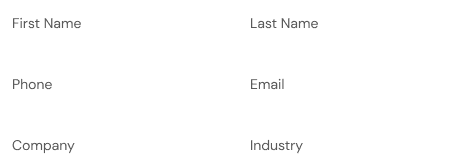
With the current labour and talent shortages worldwide, leaders must find cost-effective ways to grow and scale their businesses. This is why outsourcing is becoming an attractive option for many organisations.
According to Exploding Topics, the global outsourcing market is worth $92.5 billion in total contract value. Companies that use outsourcing services have observed that it enables them to focus on core competencies while cutting costs. In particular, companies that outsource to the Philippines can cut labour costs by 70 per cent.
The booming outsourcing industry provides organisations with numerous options to choose from when it comes to acquiring talent overseas. While there are several global outsourcing leaders in the world, the Philippines is the most viable option for businesses when outsourcing international remote employees. Taking a look at the BPO and IT-BPM industries and the Philippines’ positioning in these sectors will demonstrate why Filipino talent is a cut above the rest.
Why is the Philippines one of the leading countries in the global BPO and IT-BPM industries?
The IT & Business Processing Association Philippines (IBPAP) Roadmap for 2028 reports that the IT-BPM industry has grown not only in scale but also in its role and capabilities, from providing cost arbitrage to delivering value-add and business impact.
Because of the shift to online business models and the increase in self-service and digital channels, there’s a growing demand for IT-BPM services across different industries, such as technology, banking, retail and commerce and healthcare. North America continues to be the largest adopter of IT-BPM services, with a share of 37 to 41 per cent followed by Europe at 35 to 39 per cent.
On the other side of the coin, Asia Pacific has risen to the top as the location of choice for offshoring because of the talent-cost proposition, proficient English-language skills,
extensive domain and technical skills and high scalability potential.
The Philippines is the second largest IT-BPM services delivery location, with a 16 to 18 per cent share in the global IT-BPM services industry. It is a destination of choice for global services delivery because it provides the following:
- Healthcare services
- Non-voice business process services (e.g. finance & accounting, human resources, industry-specific services)
- IT application development and maintenance services
- IT infrastructure services, and digital services
- Customer experience services
Let’s take a closer look at the differences between the outsourcing services provided by India and the Philippines. As indicated in the image above, these are the top two service delivery locations in the world, so what are the differences between them?
India, being the first largest service delivery location, has good IT infrastructure and service capabilities and a large talent pool.
India has a low average salary and a relatively low cost of living, which provides companies with several cost-saving opportunities. For example, hiring a software developer in India would cost an average of 664.53 USD per month, while a developer in New York City would cost an average of 8,742.25 USD per month.
The Indian higher education system also focuses on science and technology, producing over 2.6 million STEM graduates annually, making India the preferred outsourcing location for software development services.
Meanwhile, the Philippines has a high adaptability to Western culture as most of the Filipino workforce has advanced English proficiency while being service-oriented. Fluency in English and familiarity with Western culture allow Filipinos to carry out customer service jobs easily, particularly for English-speaking businesses. The Philippines also provides tax exemptions that help the outsourcing industry while attracting businesses worldwide. The IBPAP Roadmap for 2028 also states that the Philippines produces approximately 850,000 fresh college graduates every year, boosting the talent pool within the country.
What does the future growth of the Philippine outsourcing industry look like?
The Philippines currently has a strong position in the global outsourcing market, but what about in the next five or 10 years? Understanding the projected trajectory of the country’s outsourcing industry can give you the confidence and reassurance you need before partnering with a local outsourcing centre or service provider.
With the acceleration of digital transformation within the BPO industry, BPO and IT-BPM companies are future-proofing themselves by utilising technological solutions to increase efficiency and productivity while replacing roles that have traditionally been outsourced.
This enables BPO and IT-BPM companies to invest in quality talent to fulfil more complex tasks and step into larger roles. This will enable outsourcing services organisations to provide high-quality candidates with the right skill sets to businesses in need.
The Philippines is constantly evolving and adapting to market needs, ensuring that the outsourcing industry can deliver more complex and value-added services.
How does outsourcing in the Philippines help you?
There are six key benefits to outsourcing in the Philippines for your business:
- Accelerate growth - Outsourcing allows you to build an in-house team of full-time employees at a lower cost. Aside from the lower average salary range in the Philippines, implementing a remote work model allows you to cut down on operational costs as well. Having a staff of full-time employees will also enable you to achieve your goals at an accelerated pace compared to hiring freelancers or part-time workers.
- 24/7 culture - Outsourcing allows you to hire staff members from different time zones, creating a workplace that is continuously running throughout the day. This enables your business to operate at maximum efficiency.
- Leverage top talent - There is a robust and growing workforce in the Philippines, ensuring that there is no shortage of talent. Their advanced proficiency in English also enables Filipinos to excel in different fields, particularly in customer service.
- Retain company focus - Building a team of full-time remote employees allows you to focus on core competencies as your staff carries out important tasks within your business.
- Increase brand loyalty - Because Filipinos have a good understanding of both Western and Asian cultures, they can easily adapt to your company culture and proudly represent your organisation, elevating the customer experience and service you provide.
- Fulfil compliance requirements - Outsourcing full-time employees can remove the legal grey areas that come with contracting freelancers. Going through the proper channels and partnering with a credible HR provider will ensure that you remain compliant in the outsourcing process.
What are the different types of outsourcing you can choose from?
There are four common types of outsourcing that you can utilise for your business:
- Freelancing - This is ideal for entrepreneurs who are just starting out, however, it is not a viable long-term solution once you start scaling your business. Misclassifying full-time employees as freelancers also has numerous negative impacts and even legal issues for both employees and employers.
- Traditional BPO - A traditional BPO service provider will handle key business procedures with agent support at call centres. While this can allow you to focus on your core competencies, this entails losing operational control over different aspects of the business, which can make it difficult to maintain quality control of products and services.
- In-house Outsourcing - In-house outsourcing can give you control over the talent you hire, but it is also time-consuming and costly to set up your own entity in a different country. Overlooking key aspects of labour law and tax compliance, will result in costly legal and financial complications.
- Employer of Record - This is the ideal solution for start-ups and small to medium businesses that are seeking to grow and scale cost-effectively. Going for an Employer of Record solution is an easy market entry to hiring great talents. A credible EOR provider can typically onboard your team in 5 to 20 business days at cost-effective rates and ensure that you are compliant with local labour laws. Your EOR provider will insulate your business from regulatory liabilities and the hassle of setting up your own in unfamiliar countries.
What are the next steps you should take?
As employers, it’s important to be aware of your responsibilities in hiring international remote workers in the Philippines. You will need to provide employment contracts, proper compensation and work benefits in compliance with Philippine labour laws.
Partnering with an Employer of Record (EOR) will ensure that your business is compliant and that the best talent is hired for your team. An EOR can handle the necessary HR-centred administrative tasks so that you can focus your time and attention on your business. Using EOR services allows you to build a remote team that is a direct extension of your existing staff, without the hassle of creating an entity or ceding control over your business processes.
Outsourcing in the Philippines is a great strategy that you can utilise for your business especially as you start to grow and scale. The Philippines is one of the leading outsourcing industries in the world, providing highly qualified workers at affordable rates.
We’ve created the ultimate guide for everything you need to know about outsourcing and partnering with an Employer of Record. This will guide you in the steps you need to take as you build a team of remote employees based in the Philippines. Download our ebook for more information.
Jump straight to a key chapter
Spending Too
Much Time
Onboarding?
your remote hiring in the
Philippines, excellently.
Say Goodbye to High Costs!
Request Your Free Consultation Today andSave a Massive 70% on Your Workforce!

Ready to thrive in a remote-first work environment?


